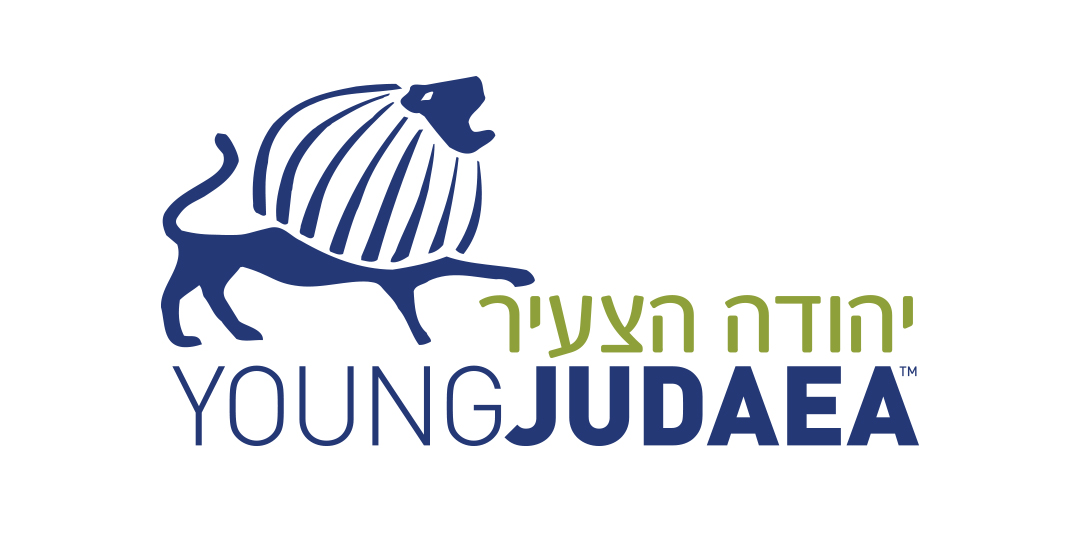
A Meeting with Raanan Rein, Vice President of Tel Aviv University
By Ariana Jones, WUJS Participant

First tell me a little about yourself…
RR: I was born here in Israel. In fact my family has been here in Jewish Palestine since the 1880s, long before the establishment of the State of Israel. At least in Israeli terms, I’m an indigenous guy. I was trained originally as a journalist. I worked for Israeli Radio for several years. Then I joined a group of journalists to start a new “Daily” in Hebrew, “חדשות” (which means news). I worked there for several years until I decided to enter a doctoral program, here at the university. Then I gave up on my journalist career in favor of an academic career. I wrote my (doctoral) dissertation about the relations between Spain and Argentina during the first decade after the end of WWII. For my research, we went to Spain and spent a year there, and then we went to D.C. to look at archives for several months, and then spent an entire year in Buenos Aires. Unlike myself, my wife was born in Buenos Aires; we met here as undergraduate students at TAU. Once I submitted my dissertation, it was clear to me that I would opt for an academic career. I spent some time abroad. I did a post-doctoral stay at the University of Maryland at College Park. Then I became a professor here at Tel Aviv University. Apart from my academic career as a scholar and historian, I’ve also had several administration positions here at the university. I was vice provost here between 2006 and 2009, and this is my third year as the Vice President of this great institution, Tel Aviv University. This university is the largest and most comprehensive university here in Israel, also the best university in Israel in several aspects. Don’t just take my word for this, the recent international ranking by the Times: Higher Education Supplement has put us as the number one university in Israel. I have two kids; my son is 28 years old. My daughter is 23 years old, like very many Israeli youngsters, she just came back from six months in Nepal, India, and Sri Lanka.
What interested you about the Hispanic communities in Spain and Argentina?
As it usually happens, I was very influenced by one of my professors. As an undergrad student, I had an amazing professor of Spanish history, Shlomo Ben Ami. He later became the Israeli ambassador to Spain, and then became the Israeli foreign minister in the government of Ehud Barak. Shlomo is a brilliant intellectual, very passionate about Spain and Spanish history. I started studying history with him, and was attracted by the interactions of Jews, Muslims, and Christians in Medieval Spain. As a grad student, I focused in the modern history of Spain, especially the 19th and 20th centuries. When I had to choose my doctoral dissertation, I opted for the relations of Spain and Argentina. Originally my research had very little to do with Jews and Jewish history. In each and every visit of mine to Argentina, people kept asking me questions about Jewish immigration to Argentina, about Argentine neutrality during WWII, about the entry of Nazi war criminals to Argentina after the end of the world war, and about ties between Argentina and Israel. So gradually I was drawn to conduct research on a wide variety of Jewish topics in Argentina. In most cases it was social and cultural history instead of political history. My most recent book is devoted to Jews, soccer, and the making of Argentina.
Is there a big Latin American community here in Israel?
There is a relatively large number of emigrants here from Latin America. I sometimes hesitate to call it a community, but we’re talking something about 100,000 Israelis of Latin American origin. Unlike some places [in the U.S. or Europe] it’s cool to be Latin here, Latin music, Latin soccer, Latin telenovelas, Latin food. If people hear you speaking Spanish in the street, they would probably be nicer to you.
Do you work at all with the Latin community here in Israel?
I do collaborate closely with a wide variety of organizations and associations of Latin Americans here in Israel. In most cases we’re talking about Jewish Latin Americans who have relocated to Israel. I have also been in contact over the years with non-Jewish Latin Americans, mostly migrant workers who spent some time in Israel, and were trying to alleviate their situation through their stay here.
Do you know how the transition is here amongst the Jewish Latin emigrants who come here? Is it easier for them to assimilate?
In most cases, we talk about Jewish Latin Americans. It seems that their experience here is better than in other non- Spanish speaking countries. It’s not just that everything Latin is popular here in Israel. It’s also the informalities of both societies [Latin American and Israeli]. There is something in the social interactions here that are similar to the Latin American one. It is often easier for Spanish speakers to pronounce the Hebrew language than English. Unlike immigrants from several countries which are considered underdeveloped. Immigrants from Latin America are categorized in the same group of the U.S. and Western Europe. My impression is that “yes, the experience here is easier than in other non- Spanish speaking countries.”
Switching to the campus, if someone came to Tel Aviv University on a campus tour for the first time, what is something you would tell them to leave a lasting impression?
I would tell them that this is a research oriented university. It’s a liberal campus, categorized by pluralism, tolerance, and open minded attitudes. I think that since it’s located in the city of Tel Aviv, which is the most liberal, pluralist city of Israel, it’s easier to become part of the university community here than in many other places. We have a beautiful campus, with many activities. When you come here it’s not just the academic courses you take, it’s also the wide variety of social cultural offerings. The student union is extremely active. A lot of music events, theatre shows, and it’s a metropolitan university. So you can benefit from all the advantages of this university, and the liveliness of the city. It’s vitality, its nightlife and the like.
What is your favorite place on campus?
I would say either the balcony of the café, which is based here at the Diaspora museum here on campus or the central library. Which now-a-days has very many spaces for discussions and interactions. Not like in the old days where you had to keep silent and you couldn’t bring food inside and the like.
How does this university affect the community?
Apart from the focus on the research and teaching, we strongly believe that Tel Aviv University has a social and cultural role to play here in Israel. It’s no secret that Israeli society is in the midst of a cultural struggle over its core values and its identity. Via a wide variety of activities we try to promote the values of solidarity, tolerance, and pluralism. Thousands of our students and faculty are involved in activities within and without the campus. We have programs that attract thousands of Israeli middle and high school kids. We have problems attracting adult groups. People who are prisoners who weren’t able to finish university, we call it the popular university program. We offer very many lectures and symposiums open to the public. Students here can get scholarships if they sign up for certain social activities in different neighborhoods in Tel Aviv. We strongly believe that we have social responsibility and a social and cultural role to play here in Israeli society.
You’ve done a lot. You’ve written several books, and given countless speeches. Can you tell me what your motivation has been through all of this?
It is the intellectual curiosity first and foremost as well as the need to be a part of a wider intellectual community. The topics I research all have to do with issues of migration, identity, ethnicity, which seem very important and very relevant to life in Israel. It doesn’t matter much if you dedicate your research to one country or one region rather than another, what’s important is the topics that interest you. In this case, Israel being a society of emigrants, being a society in a constant struggle with its identity. My academic research connects me closely with the events and processes taking place here in Israel. Even though I work closely with Spain and South America, my academic activity ties me even stronger to this country of mine where my family has been for several generations now.
Let’s talk about your new book: Fútbol, Jews, and the Making of Argentina, what is the impression that you hope to leave behind?
First of all most people tend to be surprised when they see the title of this book because they tend to believe that sports haven’t been that important for Jews in the past two centuries or so. Jews are supposedly the people of the book. I claim they are also people of the ball, fútbol, basketball, and other ball games. People keep asking me, “Is that serious, where there many Jews involved in soccer in Argentina?” I said, “Yes, soccer was very important in their daily lives in South America. Many of them either played fútbol, or were administrators of soccer clubs, fans of soccer clubs. Men, women, and children, since fútbol in general is very important in Argentina it is also important for Jewish Argentines. It shouldn’t be surprised that Jews in England are intrigued by the same issues like non-Jews in England. It’s the same, Jews in Argentina are fascinated by soccer, tango like any Argentine. The commonly held assumption is that fútbol was never important for Jews anywhere because supposedly we Jews shouldn’t waste our time on unimportant activities. This is false, since the middle of the 19th century, various sports have been important to Jews everywhere.
That just brought up a final point, I know that organized sport isn’t as big here [in Israel] as in the way the school systems are set up. The children go to school in the morning, and by noon they’re out. They have the option of going to sports or other activities afterword but organized sports don’t often come with the school. When you compare to Europe, and the states, even in South America there are many after school programs that children have the option to be a part of…
It’s true that it’s not an integral part of the school’s curriculum as it is in other countries. However, very many kids are a part of sports in the afternoons and evenings. Very many Israelis are fans of soccer, basketball, volleyball, swimming, general athletics.
Do you think that will change? Or do people think the system it is perfect now and don’t want it to change?
I don’t foresee any change in the near future, although it I would certainly encourage time in not just academics but to extracurricular as well.
